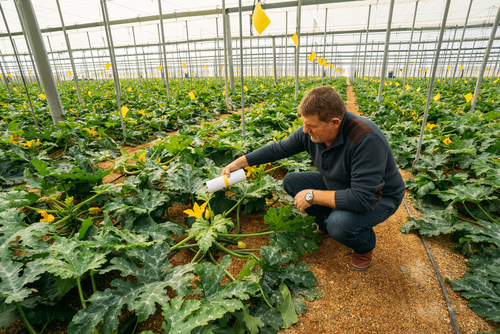
In Pasco, Washington, orchards play a significant role in the agricultural landscape, providing a bounty of fruits such as apples, cherries, pears, and more. As the demand for sustainable farming practices continues to grow, orchardists in Pasco are increasingly turning to Integrated Pest Management (IPM) as a key strategy for effective pest control while minimizing environmental impacts. In this blog, we will explore the importance of IPM in sustainable orchard management in Pasco, the principles and practices of IPM, and how orchardists can implement IPM strategies to enhance the health and productivity of their orchards.
Understanding Integrated Pest Management (IPM)
Integrated Pest Management (IPM) is a holistic approach to pest control that focuses on long-term prevention of pests through a combination of biological, cultural, physical, mechanical, and chemical control methods. The goal of IPM is to manage pests effectively while minimizing risks to human health, beneficial insects, wildlife, and the environment. IPM emphasizes the importance of monitoring, identifying, and understanding pest populations, as well as creating a balanced ecosystem that promotes natural predators and beneficial organisms to control pests.
The Principles of Integrated Pest Management (IPM)
The foundation of IPM is based on several fundamental principles that guide its implementation in orchards and agricultural settings. These principles include:
– Prevention: Proactively preventing pest problems through proper orchard management practices, such as maintaining healthy soils, selecting disease-resistant plant varieties, and implementing good sanitation practices.
– Monitoring: Regularly monitoring pest populations and environmental conditions to assess pest threats, identify pest species, and determine the most appropriate timing for control measures.
– Identification: Accurately identifying pest species and understanding their life cycles, behaviors, and vulnerabilities to develop targeted control strategies.
– Action Thresholds: Establishing action thresholds for pest populations based on economic, ecological, and health considerations to determine when intervention is necessary.
– Control Measures: Implementing a combination of biological, cultural, physical, mechanical, and chemical control measures based on the principles of least toxic control and minimizing environmental impacts.
Implementing Integrated Pest Management (IPM) in Pasco’s Orchards
For orchardists in Pasco, implementing IPM practices can help effectively manage pests while reducing reliance on conventional pesticides and promoting sustainable farming practices. Some key strategies for implementing IPM in orchards include:
– Cultural Practices: Implementing cultural practices such as crop rotation, mulching, pruning, and proper irrigation to create healthy and resilient orchard ecosystems that are less susceptible to pest infestations.
– Biological Controls: Using natural predators, parasitoids, and beneficial insects to control pest populations and maintain ecological balance in orchards. Introducing beneficial organisms such as ladybugs, lacewings, and predatory mites can help reduce pest populations naturally.
– Monitoring and Scouting: Regularly monitoring orchards for signs of pest damage, pest populations, and beneficial organisms to make informed decisions about pest control interventions. Scouting can help orchardists detect pest outbreaks early and implement targeted control measures.
– Mechanical and Physical Controls: Using physical barriers, traps, nets, and tools to physically exclude pests from orchards or disrupt their life cycles. Mechanical controls such as pheromone traps, sticky traps, and barrier tapes can help reduce pest populations without the use of pesticides.
– Chemical Controls: When necessary, using least toxic pesticides and eco-friendly solutions as a last resort to target specific pest populations while minimizing environmental impacts. Selecting pesticides with low toxicity to beneficial organisms and following integrated pest management guidelines for pesticide application can help reduce risks to non-target species.
Benefits of Integrated Pest Management (IPM) in Sustainable Orchard Management
The implementation of Integrated Pest Management (IPM) practices in Pasco’s orchards offers a host of benefits for orchardists, the environment, and surrounding communities. Some of the key benefits of IPM in sustainable orchard management include:
– Reduced Pesticide Use: By focusing on prevention, monitoring, and least toxic control measures, IPM helps reduce reliance on conventional pesticides and minimizes chemical inputs in orchards.
– Improved Environmental Health: IPM promotes a balanced ecosystem that enhances biodiversity, supports beneficial organisms, and reduces risks to wildlife, pollinators, and water quality.
– Enhanced Crop Quality: By managing pests effectively and promoting plant health, IPM can help improve the quality, yield, and marketability of fruits in orchards.
– Cost-Effectiveness: IPM strategies can help reduce production costs, increase efficiencies, and optimize pest control efforts, leading to long-term economic benefits for orchardists.
– Sustainability: By integrating biological, cultural, and ecological practices, IPM contributes to sustainable farming practices that prioritize environmental stewardship, social responsibility, and economic viability.
Summary
Integrated Pest Management (IPM) plays a vital role in sustainable orchard management in Pasco, Washington. By following the principles of IPM, implementing a combination of cultural, biological, physical, mechanical, and chemical control measures, and prioritizing environmental stewardship, orchardists in Pasco can effectively manage pests while promoting healthy orchard ecosystems. Through a commitment to integrated pest management practices, orchardists can enhance the health, productivity, and sustainability of their orchards for generations to come.
Need Soil Testing in Pasco, WA?
Founded in 1992, Custom Orchard Fumigation was created by farmers for farmers. We take great pride in providing soil fumigation services to farmers throughout the state. We can also help growers find other services to help in growing their crops. We also provide all paperwork for our services to ensure all regulations are met. Our founder, Chris Ford, has a background in Forest Management, and we are conscious of reducing the environmental impact on the soil and surrounding areas of your plot. Custom Orchard Fumigation invites you to visit our website or give us a call today!
